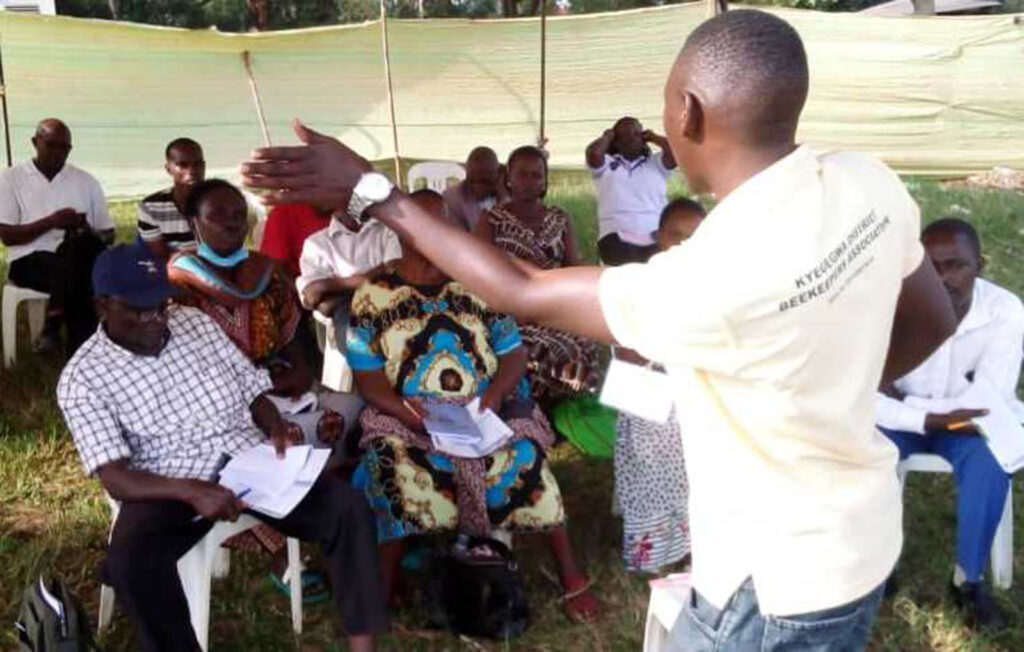By Stephen Nuwagira
Margret Tuhairwe, a beekeeper in Kihani Ibanda South County, Ibanda district could not believe that one can harvest honey every three months and get up to 20 litres of honey per hive.
Tuhairwe, who was attending a session on beekeeping at the ongoing Ibanda district farmers training and exhibition on May 27, said she harvests honey twice a year and gets two litres of from each of her traditional hives. Many of the attendees expressed similar views, saying the business was not profit.
However, the trainer Asaph Nabimanya, from Apinet Uganda, said poor husbandry practices and the use of traditional hives were largely to blame for the minimal levels of productivity in the sector. He encouraged beekeepers to embrace modern hives and also feed the bees well to improve production.
“When bees are left to travel long distances in search of food and water, they become less productive as they are always tired. Therefore, you must provide supplement foods and grow flowering and bitter plants at the apiary for them to feed and collect nectar and propolis from near,” he advised.
He also emphasised the issue of sanitation is also important, explaining that the bees will always swam (leave) whenever they find undesirable items in the hive like spiders and lizards.
Nabimanya explained that traditional hives are affordable, but they are not as productive as modern ones like KTB and Langstroth. Traditional hives cost between sh7,000 and sh20,000, depending on size and one’s location.
KTB hives range from sh90,000 to sh100,000 in Ibanda, while Langstroth are for between sh300,000 and sh350,000 each. Although Langstroth hives are expensive, one can easily recoup the investment as they can produce up to 20 litres of honey per harvest each compared to traditional ones that give below five litres each, he said. A litre of honey goes for sh20,000 in Ibanda.
He said beekeeping was a lucrative enterprising as honey and other bee products like venom and propolis have ready markets in Uganda and abroad.
However, the participants said they never get guidance on the best practices and equipment to use from sub-county extension staff. Josephine Naiga, of Kyabugaija in Ibanda Municipality, said that the lack of knowledge and necessary were some of the challenges beekeepers face. I call on the government to provide us equipment at subsidised prices through Operation Wealth Creation and Parish Development Model, said Naiga during the training. However, according to Maurice Mutabazi, the Ibanda district entomologist, the district carries out joint extension service outreaches weekly, during which they guide and provide information to farmers interested in the apiary sector. There are over 800 beekeepers in Ibanda district, producing an estimated 2,000 kilogrammes of honey annually.
The training and exhibition was organised by Ibanda Community Organisation Network (ICON), together with Ibanda District Farmers’ Association and Ibanda local government. The event, which ends today May 27, attracted farmers, input suppliers, innovators, educational institutions, and the general public. It was under the theme, “Agriculture modernisation and value addition”.






